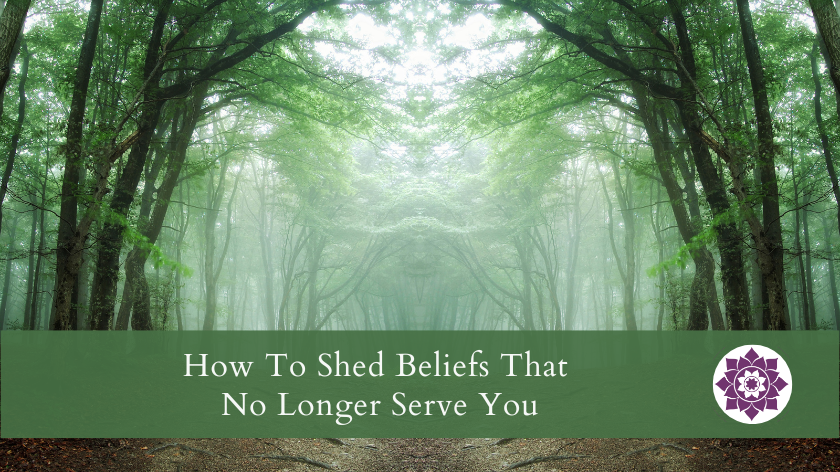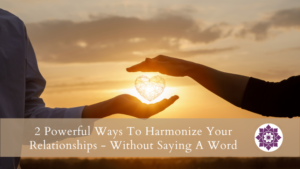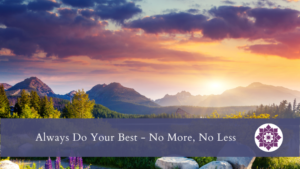If everything in your life is working in perfect harmony, then we don’t need to understand or delve deeper into the journey of our beliefs. But, if it isn’t, maybe it is time to look closely at what the reasons could be and where they could come from.
THE LOBSTER’S TAIL
One day a child was watching her mother prepare a lobster for lunch. ‘Why are you cutting off its tail?” she asked. ‘Hmm,’ replied her mother, as she dropped the pieces into boiling water, ‘Now you ask, I’m not sure why. It’s something your Grandma showed me how to do.’ Curious, the little girl ran off to find her grandmother. ‘Grandma! Why do you cut off the lobster’s tail before you boil it?’ Her grandmother said, ‘No idea, to be honest. My mother always did it like that.’ The girl found her great-grandmother in her rocking chair. The old lady laughed. ‘Do they still do that? I just cut it up to fit it into my pan.”
This story from Sidra’s book – The Awakening, shows us how when you ask questions like the little child did, it will take you on a journey that traces all the way back to the point of creation of where your current day beliefs come from. The story is a very simple example for you to examine your own beliefs.
To understand a little more about beliefs, let’s look at our current belief system and identify where it came from.
Childhood
As children from 0 to 7 you are in the imprint age – where you simply absorb all the information that is given to you, readily accepting it as being true. You are too little to understand what you are exposed to. You easily download all the beliefs you are given. Without questioning their validity.
Growing up
We learn that when we do what our parents want, we’re considered “good,” and when we don’t, we’re “bad.” We receive punishment when we break rules and rewards when we follow them. We begin to fear punishment and crave acceptance from others. This leads us to act in ways that please others and makes us pretend to be someone we’re not. We even adopt beliefs from those around us, as we are too young to think for ourselves, reason or rebel and slowly we lose touch with our true selves.
Adulthood
As we get older, we learn about what is considered good and bad, and this helps us learn how to behave in society. Eventually, we become so used to this way of living that we don’t need anyone to tell us what to do. We become self-trained animals that can follow the same belief system we learned from our parents and teachers. We punish ourselves when we break the rules and reward ourselves when we do what we’re supposed to.
Now that we see how our belief system develops over our lifetime, let’s look at how we operate from it.
Just as the government has a book of laws that rule the society, our belief system is the book of law that rules our personal life. All these laws exist in our mind, we believe them, and the Judge inside us bases everything on these rules, even if they don’t match our true feelings. Whenever we do something that goes against the rulebook, the judge punishes us and makes us feel ashamed. Another part of our mind, called the victim, accepts this judgement and believes that we’re not good enough.
Eg., if in your book of law, waking up early is a sign of successful people and you don’t wake up one day, then your internal judge gives a verdict that you are lazy and not good enough. This in turn fills you with a lot of guilt.
Whatever goes against the book of law will make you feel a whole range of emotions like fear, blame, guilt, shame and so on. That is why we need a great deal of courage to challenge our own beliefs. Because it means you may be going against yourself.
The truth is though we didn’t choose all these beliefs, somewhere along the line growing up, we made it our blueprint or framework for conducting ourselves in society and therefore it is safe to say, we agreed to them. And this agreement is now so strong that even if we understand the concept of a belief not being true, we feel the fear, blame, the guilt, and the shame that show up inside us, if we go against these rules.
That brings us back to the question – If your life is not in harmony, maybe it is time to look closely at what the reasons could be and where they could come from.
Sidra Jafri says – When something in our life is not working, it is usually our belief around that situation that needs attention. She invites us to explore our belief system with this new awareness and shed those that don’t make us feel true to ourselves.
As humans we have evolved over generations. Our ancestors did what was right in their time. But now times have changed so it’s our job to update our actions, beliefs and practices and align them with our current timeline in order to live a life of ease and grace. – Sidra Jafri
We have lived by this belief system for so long that our thinking, our response, our actions and above all our judgement of ourselves and others is automatic – most often detrimental to our own well being. Our mind is judging us and others at all times. It is like this judge who gives you a verdict for your every action. Good or bad is also a judgement. Isn’t it?
Did you know there are cons to being good and pros to being bad?
Each serves us and harms us in different ways. Let’s take a close look.
Pros of being good
- Approval and validation Being good can bring approval and validation from parents, teachers, peers, and society in general. This can lead to feelings of self-worth and confidence.
- Trustworthiness: Being seen as good can make others trust you more, which can lead to better opportunities and relationships.
- Respect: People may respect you more if you are seen as good because they see you as someone who follows rules and has good moral character.
Cons of being good
- Conformity: Being a good‘ may require conforming to certain expectations and standards set by others, which can stifle individuality and creativity.
- Pressure: The pressure to maintain a good image can be overwhelming and can lead to anxiety, depression, and other mental health issues.
- Unfair expectations: Being seen as a good person can lead to unrealistic expectations from others, which can be difficult to meet and can cause stress.
- Judgement: There may be a tendency for others to judge or stereotype you based on your good image, which can be limiting and frustrating.
Pros of being bad
- Independence: Being bad can be seen as a rejection of traditional norms and expectations, which can lead to a sense of independence and freedom.
- Confidence: Engaging in bad behaviour can require a certain level of confidence and fearlessness, which can be empowering.
- Excitement: Breaking rules or engaging in risky behaviours can bring a sense of excitement and thrill.
- No fear of judgement: When you do as you wish, you operate from a space that does not fear judgement of the world.
Cons of being bad
- Consequences: Engaging in bad behaviour can lead to consequences, such as being ostracised or judged by others.
- Harm to oneself or others: Engaging in risky or harmful behaviours can lead to harm to oneself or others, both physically and emotionally.
- Negative stereotypes: Society may have negative stereotypes or perceptions of a bad person which can limit opportunities and relationships.
- Lack of trust and respect: Being perceived as a bad person can make it difficult for others to trust or rely on you, which can lead to social isolation and lack of support.
- Lonely Journey: Because of the above, you often end up being lonely most of the time, and have a smaller circle of support. You need courage to walk the path and stand in your truth, no matter what.
Good and bad is a judgement about who they think you are. It is not who you truly are. Why is that?
Because in our interpretation you are good / bad based on what you do. The truth is being good / bad is about being who you are as a whole and is not isolated to a few incidences of what you do or your perspectives on things and life.
Beyond being good and bad, there is a state called Being You.
When you operate from this space, you find yourself doing what feels light in your body and feels true in your heart. Your actions are free from internal and external judgement. Your body’s consciousness becomes your guide on the path of life. You know truth feels liberating and anything other than the truth feels dense. And this feeling guides your thoughts and actions.
You keep what you resonate with. Drop what you don’t resonate with.
So how do you reach this place of being you, and what stops you? What belief is that you need to release that when you release it you will make place for your own true belief to be installed? Consciously.
To understand this, take a few moments and write a few beliefs you have – both good and bad in areas of money and relationships (easy to think of areas).
- Identify them as your own or acquired.
- What’s their impact on your life?
- Has it served you or sabotaged you?
- Do they need to be released and replaced?
Eg., Growing up, if you picked up your fathers belief that money is hard to come by, you embrace it and make it your own. Or you picked up a belief that having kids means it ends your career…and so on.
Your beliefs manifest your reality. That is why you need to change beliefs that don’t serve you. Your thoughts, if you think them over and over, and assign truth to them, become beliefs. When you have the courage to change your belief is when you will take action and that will change your destiny.
Listen to this guided meditation to help you shed those beliefs you don’t resonate with and replace them with the ones you want.




